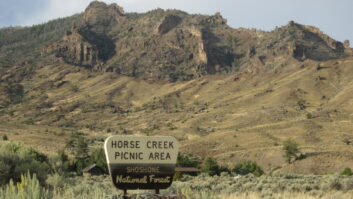
WASHINGTON � The FCC has announced that 10 FCC staffers have been named regional coordinators for the 10 geographic regions into which the FCC has divided the post-incentive auction TV station repack for coordination purposes. That is according to a public notice issued April 20.
Those regions are distinct from the 10 phases into which the repack has been divided, with the phases having to do with interference relationships and dependencies between stations, efficient deployment of construction resources and minimizing viewer disruption.
The coordinators will also be points of contact for MVPDs having to re-tune equipment to pick up the reconfigured station signals.
They will be the points of “first contact” in the rolling repack over the next 39 months (July 13, 2020 is the current deadline), there to help resolve any “issues and challenges” that arise as almost 1,000 stations move to new channels requiring that stations “purchase and install new transmitting equipment, file appropriate applications for construction and operating authority, complete construction of new facilities, provide required notifications regarding the station�s termination of service on the pre-auction channel, and make the switch to broadcasting on their new channels by the applicable deadline.”
July 13, 2020, is the deadline for the last station to transition, but by that time almost all will have made the switch since the repack is being done by phases.
TV stations should be on the lookout for an email of introduction from their coordinator to begin the process of coordinating the repack, says the FCC.
The coordinators are Sonia Greenaway, Central Plains; Kenneth Lewis, Florida Peninsula; Nancy Murphy, Hawaii/Puerto Rico/Virgin Islands; Joyce Bernstein, Mid-Atlantic; Katie Costello, Midwest; Raphael Sznajder, Northeast; Shaun Maher, Northwest; David Roberts, Ohio River Valley; Jeremy Miller, Southeast; and Gary Schonman, Southwest.
Hossein Hashemzadeh and Melvin Collins will be the points of contact for LPTV and translator stations, which are not protected in the repack and many of which will be moving or potentially displaced.
A version of this article was originally posted on B&C, sister publication of Radio magazine.�
�










